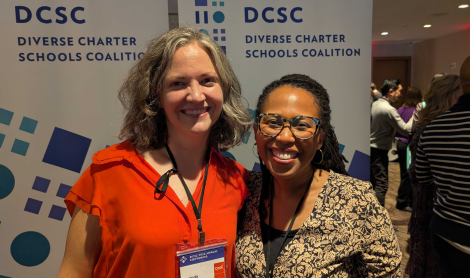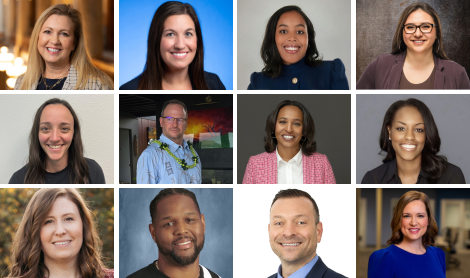What’s possible today? Who can start new, high-quality, innovative, and equitable schools? Is it possible for community members, talented educators, or the next generation of leaders to start a new school that meets the aspirations and needs of a local community? In too many instances the answer is no.
But it doesn’t have to stay that way!
It’s possible for:
- Families have access to a wide array of excellent, innovative and equitable schools
- Schools match the aspirations, interests, and needs of communities
- More schools led and governed by people of color and those with ties to communities
- Students are achieving at higher levels than ever before and in more ways that previously recognized.
For that to happen we must rethink the new school application. Below are NACSA’s recommendations on how to do that.
Continue reading to learn more about NACSA President and CEO, Karega Rausch’s, reflections regarding the new school application.
We cannot spend or regulate our way out of the ravages of the pandemic; we must create our way out. That’s why we have to build an ecosystem for more creative problem solvers, especially those closest to the experiences of students and families, into education and charter schooling.
The work we’re doing at NACSA to understand the barriers and gateways for new school applicants is a fundamental starting point for creating our way out. And it’s deeply personal for me.
I got into authorizing to create quality new and different opportunities for kids who deserved better than what they were getting. I’m still in it for those reasons today.
Over the last several months my team and I had the privilege to hear from many of you through interviews, surveys, focus groups, data analysis, even a recent panel discussion we hosted on why the new school application process must evolve. Repeatedly, we heard that students, in too many communities, still lack access to great schools that meet their needs and aspirations – a fact that must change, now, as we all work differently to emerge from global pandemic.
There is a lot we have gotten right in charter schooling and authorizing over the last 30+ years. The evidence is clear that our work has resulted in thousands of world-class schools demonstrating what’s possible for students, especially students living below the poverty line, students of color, and many other students. That’s why one of our recommendations is to double down on important practices that have worked – things like conducting thorough due diligence on existing operators and building diverse, community-oriented review teams.
But we have to do things differently to build learning opportunities for the next 30+ years. That’s why the rest of our recommendations focus on how practices and policies need to evolve, including reducing unnecessary paperwork, focusing on evaluating applicant teams more effectively, and providing space for really new and different ways of organizing teaching and learning to be piloted.
We—authorizers, policymakers, community and education leaders—have to listen and act from the needs and aspirations of communities, especially those historically under-resourced, to ensure all students have access to high-quality schools. Anything less falls short of the brilliance that exists in communities and students.
-Karega Rausch



